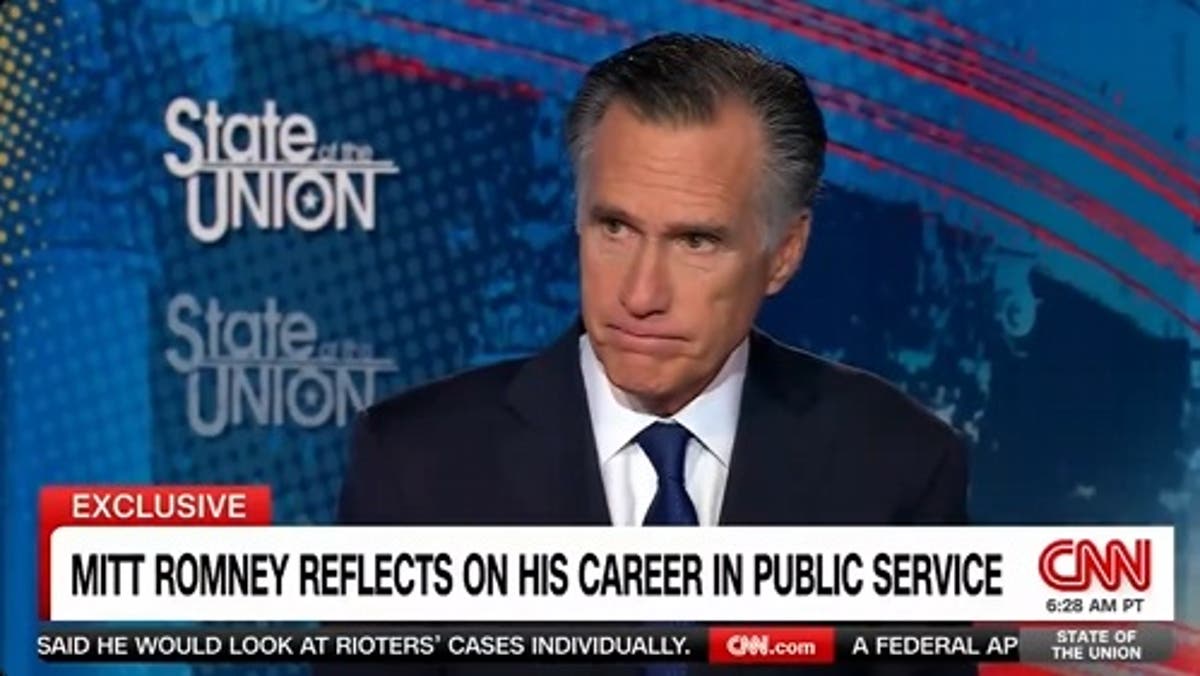Daniel Penny, who on Monday was found not guilty of criminally negligent homicide in the death of Jordan Neely last year, says he wants to resume a normal life now that the closely watched criminal trial has concluded.
Through his lawyer and in a television appearance after the verdict, he said he plans to go back to school, become an architect and even resume riding the New York City subway.
But like many defendants who are acquitted after high-profile and divisive cases, a sense of normalcy may be hard-won for the 26-year-old former Marine. Gothamist spoke to high-profile defendants, their lawyers and media experts who agreed that Penny’s case is likely to follow him for years, and his public reputation may long overshadow his private life.
“ I don’t want any attention. I don’t want the limelight,” Penny told Fox Nation on Wednesday. “I’d like to just go back to normal, though … we’ll see.” Penny’s lawyer did not make him available for an interview with Gothamist.
Neely’s family is also struggling to move forward. Neely’s father, Andre Zachery, has filed a civil lawsuit against Penny. When the verdict was announced, Zachery cried out in court and was escorted from the room. “This really, really hurts,” Zachery said a short time later.
When asked if he felt the impact on the Neely family’s loss in the Fox Nation interview, Penny said only, “Of course.”
Penny was charged with causing Neely’s death by holding him in a chokehold for several minutes on an uptown F train on May 1, 2023. Witnesses said Neely, a former Michael Jackson impersonator who had schizophrenia, started yelling threats after he boarded the train. Penny held Neely in the chokehold on the floor of the train for about six minutes, according to evidence presented during the proceedings. Neely was pronounced dead soon after.
A video that a passenger took of Penny holding Neely in the chokehold went viral soon after the incident, and prompted strong responses from the public — with some seeing Penny as a hero and others seeing him as a killer. In the days after Neely’s death, and before Penny was charged with a crime, protesters flooded subway platforms in response. Prior to his trial, Penny’s supporters donated more than $3 million to a legal defense fund on a Christian crowdsourcing website. After the verdict, the amount grew by more than $360,000.
Perhaps no one knows better what it’s like to become a lightning rod for controversy over crime on the New York City subways than Bernie Goetz, who in 1984 shot four young people he said were trying to rob him on the subway. At the time, the city celebrated Goetz as the “Subway Vigilante” in a time when crime was at a high. Others, however, vilified him. He was ultimately acquitted of the shootings but convicted of a gun charge.
Goetz, now 77, said whether Penny wishes it or not, he has become a proxy for people’s feelings about subway safety.
“This isn’t so much about him, this is about the bulls–t going on in New York,” Goetz said in a phone interview. “The people on the subways are threatened all the time and should people put up with this?”
Goetz said he sympathizes with Penny, and their cases bear many resemblances. Subway crime rates were high in the 1980s. There was also widespread fear about subway crime when Neely died in 2023, even though officials stressed rates of subway crime were lower than they had been before the pandemic. Both Penny and Goetz characterize their actions as defensive — Goetz defending himself and Penny defending others on the train. Both were also subject to lengthy public prosecutions.
Goetz said Penny’s desire for normalcy will be difficult to realize for the first several years. Goetz sold electronics to factories and said that after his trial he lost many of his business contacts in and around New York City because no one wanted to talk to him.
“ There was a big drop in business. It basically ruined me. The prosecutions destroy you financially,” Goetz said.
The polarized media market these days allows Penny and his lawyers to seek out sympathetic outlets to tell his story and drum up support. Penny turned to conservative outlets Fox and the New York Post for press after the verdict. Goetz said there was no equivalent in the 1980s, and he still blames the New York Times for what he felt was negative coverage.
Today’s more fragmented media offers Penny niche markets that he can potentially capitalize on, according to UCLA communications professor Tim Groeling.
“ There are people with very narrow interests that are obsessive about things,” Groeling said. “You can sustain narrow and deep interest in a subset of the audience much more easily now than you used to, and dramatic crimes have the possibility of sustaining that kind of interest.”
Groeling points to social media and niche media platforms where chatter can persist even years after a case is over. For example, he pointed to a subreddit for brothers Lyle and Erik Menendez, who were convicted of killing their parents in 1996, that currently has 42,000 followers.
Others have been able to profit from their notoriety and these niche markets. Kyle Rittenhouse was acquitted of two killings in 2020; he became a star for gun advocates and also sells apparel. And Amanda Knox, who was accused of killing her roommate in 2007, has since built a media franchise with books, podcasts, films and speaking engagements dedicated to true crime stories.
However, Groeling said the fractured media works the other way.
“ Mr. Penny is going to have people talking about him for the rest of his life,” he said. “Praising him or criticizing him, the internet doesn’t forget.”
Goetz claimed bankruptcy after the criminal trial and told CNN that he never “paid a penny” of the $43 million civil judgement. In addition to the civil lawsuit from Neely’s father, Penny’s lawyers say their client is exploring his own civil lawsuit — a malicious prosecution claim against the prosecutors and the medical examiners. But it has yet to be filed.
Without detailing costs, Penny’s lawyers said his legal fund dwindled during the criminal trial. Others accused of high-profile crimes struggled to pay the bills after their trial. Casey Anthony, who was acquitted of killing her 2-year-old daughter in 2008, declared bankruptcy in 2013, according to the Associated Press, and lived with her defense investigator and his family for several years following her trial, according to Buzzfeed News.
George Zimmerman, who was tried for killing 17-year-old Trayvon Martin in 2012, struggled to find employment following his acquittal, according to his lawyer Mark O’Mara, who said even he might think twice before hiring someone with that much notoriety.
“I’ve got 20 people who work for me here, I would have to be a little bit cautious or careful having someone like Mr. Penny and Mr. Zimmerman or Casey Anthony here because the notoriety follows them,” O’Mara said.
O’Mara said there were more than 2,500 threats of violence against Zimmerman during his trial.
“ You don’t know if it’s somebody in Kansas with a borrowed laptop or down the street with a 9 mm,” he said, referring to a handgun. “You have to be aware that there are people who are very upset that Mr. Penny ended up taking the life of somebody.” New York City’s medical examiner said Neely died from Penny’s chokehold. Penny’s lawyers disputed that conclusion.
Penny told Fox Nation that he still rides the subway, but added that he has to look over his shoulder and is concerned for his family’s safety. According to Penny’s lawyer, Steven Raiser, Penny paid for private security during the trial and is still coping with trauma from the incident and criminal case.
“He has, understandably, emotional scars from what occurred and the attacks on him that persists, people are still in the media attacking him,” Raiser said.
Raiser said that people have continued to donate to Penny’s legal fund, which has grown by almost $400,000 since the verdict. Raiser declined to say how much remained after the cost of the criminal trial.





